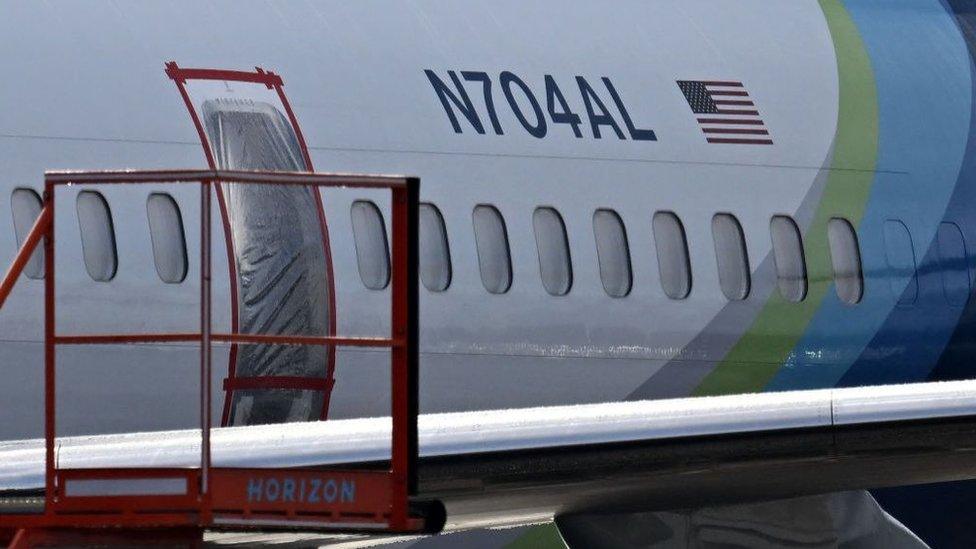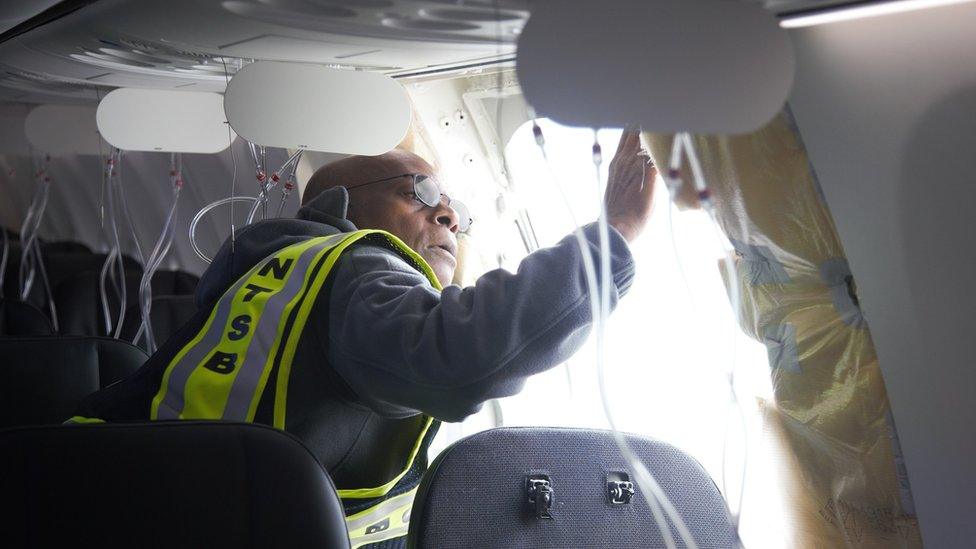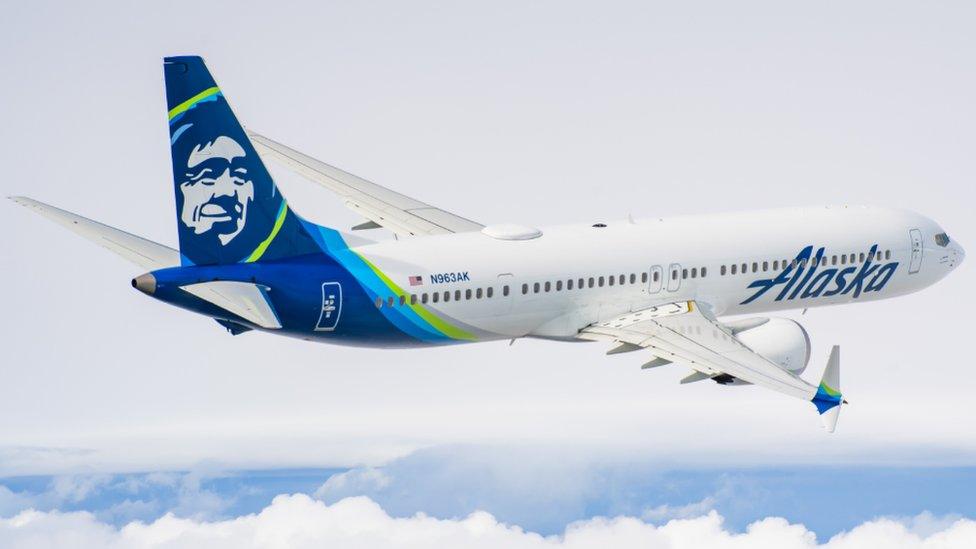Boeing 737 Max boss out after blowout
- Published

The missing panel on the Boeing plane
The leader of Boeing's troubled 737 Max programme is to leave the company, which has been under pressure since a piece of one of its jets blew out during a passenger flight in January.
The departure of Ed Clark after nearly 18 years at the firm is part of a wider shake-up of the commercial airplane division announced on Wednesday.
Boeing said the changes were aimed at improving its quality and safety.
It comes as the firm prepares to meet with regulators.
The company has been facing scrutiny since the incident on the Alaska Airline flight, which did not lead to serious injuries but forced an emergency landing.
The incident revived wider questions about manufacturing processes for Boeing's popular 737 Max planes, years after crashes involving a different version of the jets in 2018 and 2019 killed 346 people and led to a global grounding for 20 months.
Boeing was barred last month from expanding its 737 Max output by the Federal Aviation Administration, while the authority reviewed its production line for the planes. Other less serious flaws have troubled production in recent years as Boeing ramped up manufacturing following the grounding.
A preliminary investigation of what went wrong on the 737 Max 9 jet flown by Alaska Airlines found that bolts meant to fasten the door panel were missing, after being removed inside Boeing's factory in Renton Washington.
Ed Clark was vice president and general manager of the 737 programme, overseeing the Renton, Washington factory that produced the plane involved in the blowout. Calls followed from safety campaigners for new leadership at the firm.
He will be replaced by Katie Ringgold, currently vice president of 737 delivery operations. The company also announced it was creating a position of senior vice president for quality.
In a message to staff on Wednesday, Stan Deal, the head of Boeing commercial airplanes division said the changes were aimed at "ensuring that every airplane we deliver meets or exceeds all quality and safety requirements. Our customers demand, and deserve, nothing less".
He said Mr Clark was leaving with the company's "deepest gratitude for his many significant contributions over nearly 18 years of dedicated service to Boeing".
Related topics
- Published7 February 2024

- Published14 January 2024
